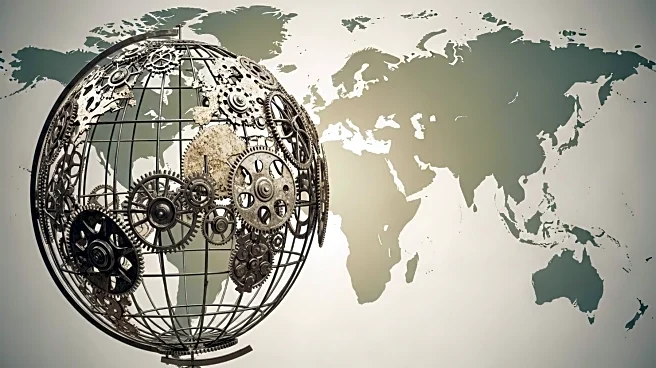What's Happening?
The United Nations Conference on Trade and Development (Unctad) has reported that trade policy uncertainty, particularly from the U.S., is significantly impacting global trade. This uncertainty, alongside actual tariffs and geopolitical tensions, is driving up costs and affecting markets, especially in developing economies. The World Policy Uncertainty Index reached record levels, indicating systemic uncertainty in global trade. This situation forces firms to make difficult decisions, such as stockpiling goods and rerouting shipments, which disproportionately affects small exporters and developing countries due to their limited financial and logistical resources.
Why It's Important?
Trade policy uncertainty poses a significant threat to global economic stability, particularly for developing countries that lack the resources to mitigate its effects. The unpredictability of trade policies can lead to increased costs, reduced investment, and financial fragility in these regions, hindering their economic growth and social development. For the U.S., this uncertainty can affect domestic markets and international relations, potentially leading to retaliatory measures from other countries. Restoring stability and predictability in trade policies is crucial for fostering investment and growth, both domestically and globally.
What's Next?
To address the challenges posed by trade policy uncertainty, countries may need to diversify their markets and strengthen trade agreements. Providing businesses with prior knowledge of policy changes could reduce risks and improve confidence in international trade. Unctad emphasizes the importance of restoring stability and predictability to enable businesses to invest and countries to grow. The focus will likely be on diplomatic efforts to resolve geopolitical tensions and establish clearer trade policies to prevent further volatility.
Beyond the Headlines
The systemic nature of trade policy uncertainty highlights the need for international cooperation and dialogue to address underlying geopolitical issues. Ethical considerations arise regarding the impact on vulnerable populations in developing countries, who bear the brunt of economic instability. Long-term solutions may involve rethinking global trade frameworks to ensure equitable access to resources and opportunities for all nations, promoting sustainable development and reducing economic disparities.










